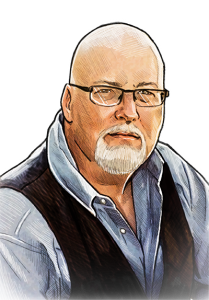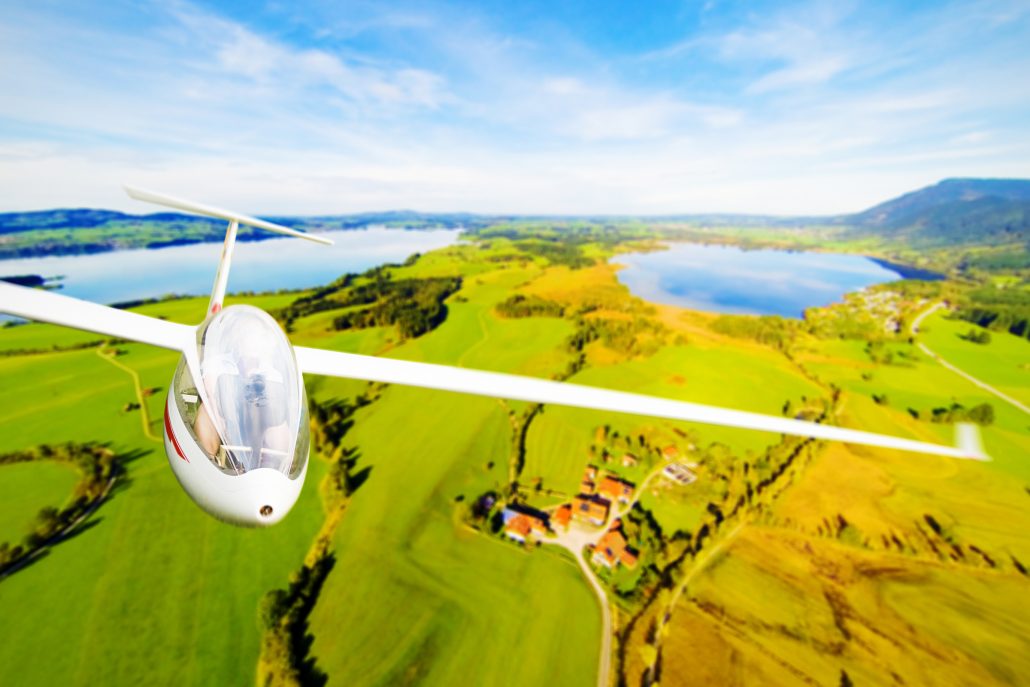AMERICAN MOTORCYCLIST July 2019
Awareness, Alertness, Anticipation
Being A Rider Makes Me A Better Pilot
 After riding for more than 30 years, I searched for life’s next experience—an activity that challenged me, that brought me to new heights of learning and growth. I looked up and saw my answer. I wanted to learn to fly.
After riding for more than 30 years, I searched for life’s next experience—an activity that challenged me, that brought me to new heights of learning and growth. I looked up and saw my answer. I wanted to learn to fly.
I chose gliders because there’s much more operator involvement and awareness than with powered flight. In flight school, it became obvious how my motorcycle riding experience would help me be a better pilot. Let me explain.
Weather is a factor that can make a simple ride to a diner a minor disaster if you don’t check first. Using the internet, I get air temperature, wind speed and direction, as well as the probability of precipitation. This information helps make the decision on whether to ride, how to dress, what to be prepared for. The weather rules!
With flying, we have METAR reports. These reports detail current temperature, humidity, barometric pressure, wind speed and direction and the probability of precipitation. Updated hourly by Flight Control, decisions on whether to fly, based on skill and ability, can be made. Here again, weather rules.
I’ve learned that talking to other pilots is important too. What did they experience? What’s the wind like?
Riders do the same, don’t we? Getting coffee or fuel, how many of us strike up a conversation with other riders: “How is it out there? What’s the road like farther north?” Nothing beats personal recommendations and warnings.
Before flying, a pilot performs a complete preflight check of the aircraft—walk around, check every component. You’re flying a shared ship. Someone went up before you and, while they had no problems, they are not you. Do all the cockpit controls operate freely and correctly? Are all the cables in good condition? Are the connecting struts, wings, fuselage, the landing wheel, in good shape?
Don’t we do the same thing with our bikes? Don’t you check the tires, cables, electrics, fluids, before you head out for a ride? Safety first on the road, and at 4,000 feet aloft.
When riding with others, there’s always the need for conversation before hitting the road: Where are you going? How long before your first gas stop? Discussions are for the safety of all.

Achieving cruising altitude requires a tow plane that pulls you up thousands of feet and it’s the same concern with you and your tow pilot. You agree about release altitude and direction to head. Like group riding, when using hand signals to update others to change, there are signals that a glider pilot can use to update the tow plane.
Flying is not dissimilar from cruising along the road. There is turbulence, changes in horizontal and vertical wind currents. With experience on a motorcycle, bumps, wind shifts, the pull as a truck passes at 70 mph or uneven pavement making your wheels dance doesn’t bring that sense of panic they used to when you first started riding.
At 4,000 feet, a sudden drop in altitude brings total fear or a controlled response. Years of riding has taught me to breathe and react, not overreact.
A flight instructor told me I have good “situational awareness.” After 20 minutes aloft, numerous turns and circles, when asked where the airfield was, I could answer without hesitation.
I attributed this to years of riding, needing to know what’s happening in traffic around me. Riding down a country road or through an unfamiliar town, a swiveling head is a requirement for safety. Always know what is going on around you, always look for exits and anticipate the worst.
Airspeed can be deceiving. Riding at 65 mph, the lines on the roadway look like dots, but aloft, there is no frame of reference. Upon approach, 100 yards from the runway, 100 feet up, airspeed converts to land speed. Landing is not about speed, but about placing the aircraft exactly where I need to, much like riding my motorcycle through a sweeping turn.
Back on my bike after a day of flying, all the experiences brought from the road to the sky prove operator control equals joy. I look forward to many years of joy on the road, and in the air.
Marc Teatum is an AMA member from Salem, Mass.
